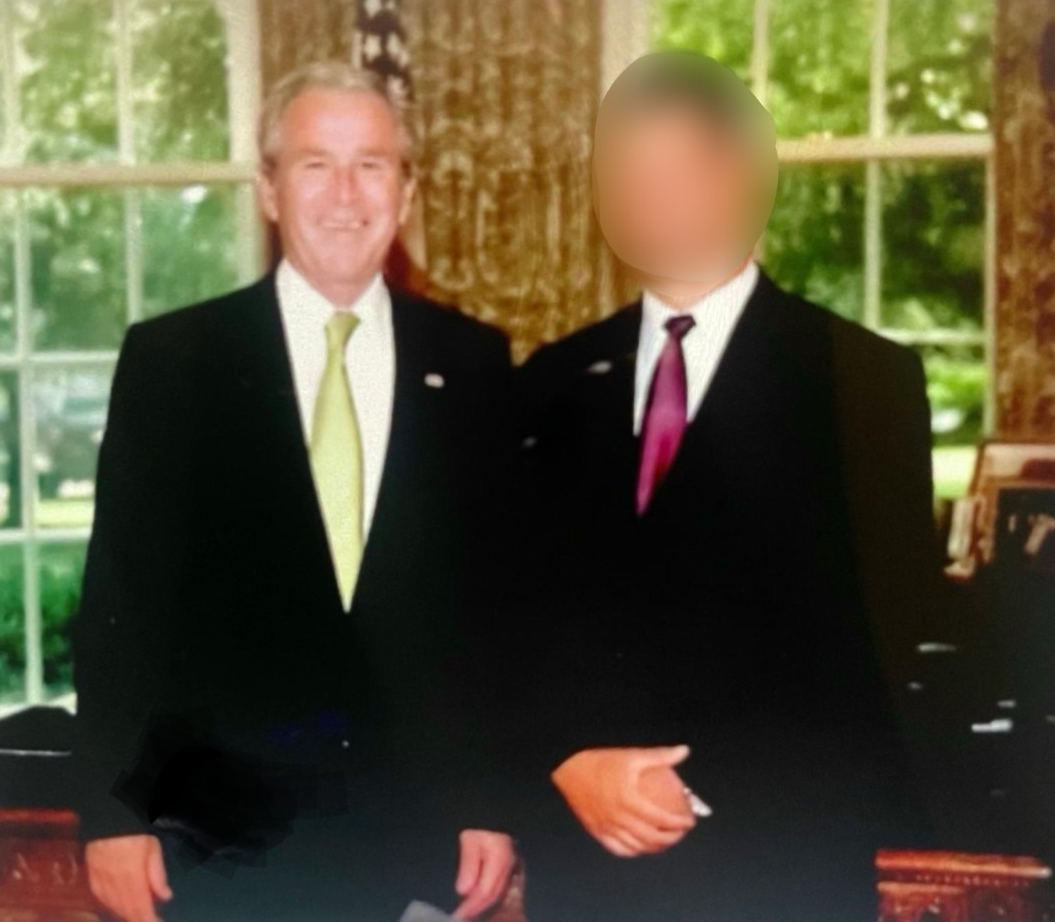After two decades in the United States Secret Service (USSS), L.M. Caheb* had already served on the president’s detail and climbed the ladder to become a GS- 14 supervisor, a major milestone signifying elite leadership status and high-stakes responsibilities. But when he vied for a lateral reassignment in 2022 to a large field office in which there were two vacancies for which he should have been a shoo-in, he said he was passed up for much younger, less qualified, lower-ranked agents.
Caheb realized the merit principles the agency had been supposed to uphold had been blatantly disregarded by Biden administration leadership. Tokenism, he said, disguised under the politically correct veil of Diversity, Equity, and Inclusion (DEI), cost him a job opportunity — and the agency’s credibility.
Now retired from the service, Caheb opened up to IW Features about the divisive ideologies and quid-pro-quo arrangements that festered within the USSS during the Biden administration.
Caheb has always worked to exemplify duty, loyalty, justice, honesty, and courage — the values that make up the five points of the Secret Service Star. Throughout his 26 years of service to the agency, Caheb said the agency, globally speaking, represented them, too. But, as he put it, “power corrupts and absolute power corrupts absolutely.”
Caheb’s passion to protect and serve led him into federal law enforcement in 1998 after serving eight years in the United States Army. But red flags first rose for Caheb when he realized there was no interview process to get promoted in the USSS. Instead, the agency operates under a merit process for recruitment and promotion –– a process that seems honorable at face value, but institutionally devolves into an “obviously political” game of who you know rather than what you know, he said.

By 2022, Caheb had risen to phase three, meaning he had already served in a large field office, had been assigned to the president’s detail, and had two years under his belt as a GS- 14 supervisor. He saw two vacancies open up for a large field office and knew he “checked off all the boxes.” But when he applied for the position, Caheb said he was passed over for that assignment due to unfair DEI practices pushed by the Biden administration.
“They ended up going with two other individuals that were much younger, less qualified, and lower-ranked than me,” Caheb alleged. “This was a blatant disregard of the merit principles. I had been passed over before, but it didn’t sting –– this stung because it was so obviously political. I was very upset.”
The first agent who received the assignment instead of Caheb was a phase one female GS- 13 agent without any supervisor experience, Caheb explained, meaning she hadn’t served in the agency for as long as he had. Caheb said this female agent had never done a protective assignment — she hadn’t even left the district where she was working. Worse, Caheb alleged she also had a disciplinary action on record for misuse of a government-assigned vehicle.
Though female agents have long been a part of the Secret Service, former U.S. Secret Service Director Kimberly A. Cheatle made it clear after being appointed by President Joe Biden that she wanted to achieve a goal of hiring 30% female recruits by 2030. This policy was a part of the broader 30×30 Initiative, which has been adopted by more than 350 federal and non-federal law enforcement agencies –– including the U.S. Secret Service –– following its launch in 2021.
Caheb said he had no idea about the 30×30 pledge until Cheatle spoke about her intentions in a 2023 interview, where she acknowledged the challenges of obstacles to training, high attrition rate, and the goal of hiring more females in keeping with the initiative.
Caheb added that many agents –– male and female –– feel similarly distressed by upper management’s disregard of the merit principles.
“My peers actually supported and shared with me similar stories of what they went through,” he said. “The problem is sometimes you’ve got bad actors within an organization.”
Cheatle resigned as USSS Director in 2024, but her tenure left its mark. By the time she left, female agents comprised roughly one-quarter of the USSS.
However, “DEI is not just about unqualified females getting the unfair advantage,” Caheb pointed out. “You also have lesser qualified males getting the unfair advantage as well.”
The second individual who received the assignment over Caheb was a phase two male who was a “politically outspoken, out-of-the-closet” gay male GS- 14 supervisor, Caheb explained. While he had slightly more experience than the female, this male agent had performance issues that led to him being banned from a property one of the protectees lived at, according to Caheb.
“That should have been concerning to the powers that be,” Caheb said.
But after Caheb filed a complaint about how the agency had blatantly disregarded its own merit principles once again, Biden-era upper management allegedly retaliated, leaving Caheb –– a supervisor –– subject to a hostile work environment.
“Some decision-making meetings, things that I should have been included in, I was excluded from. I would have to hear from another source. It was humiliating,” Caheb recalled. “I was pretty much excluded, ostracized, and I felt humiliated. It was embarrassing that I was not treated as part of the team, I guess because I had the audacity to challenge upper management’s decision.”
Though DEI practices within the USSS, such as Cheatle’s 30×30 pledge, have recently come under scrutiny due to the abject failures leading up to the assassination attempts against President Donald Trump last year, the tokenistic tradition that has been undermining the agency’s readiness had been hiding in plain sight for years, Caheb said.
In 2011, former President Barack Obama –– whom President Joe Biden served alongside as vice president –– signed Executive Order 13583, a coordinated effort within the federal workforce to promote “diversity and inclusion.” Caheb said he believes that through this EO, Obama set the stage for the increasingly radical DEI standards that Biden continued and President Trump has fought to reverse in his second term.
In 2017, for example, Caheb was already a phase three GS- 13 senior agent, had a highly-rated record, and was up for promotion. He sought a recommendation for a new position from a supervisor, who inadvertently tipped him off to the agency’s agenda-driven culture.
This special agent in charge allegedly asked him, “Who’s your rabbi?” Confused but also mildly amused, since Caheb happens to be half-Jewish, Caheb said he told the supervisor he felt it was an odd question. But the supervisor then explained to him a “rabbi,” in USSS jargon, is a nickname for someone who pushes for you like a mentor.
“He explains to me, ‘You need to have a push-pull, you need to have a rabbi pushing for you, and you need to have someone on the other side pulling for you,’” Caheb recalled.
Caheb was a finalist for the promotion, but the other agent happened to be a female who he alleges had the right “push-pull needed” for promotion. He alleged he had double the experience and qualifications but was ultimately passed over for the female agent. According to Caheb, he was ranked within the top 11% of applicants, while the female agent was ranked within the bottom 25% of the pool of candidates. Furthermore, Caheb alleged she was previously the subject of two congressional and DHS-OIG inquiries for misconduct.
“It’s offensive to the truly qualified females on the job that have a hard enough time proving that they earned their spot in an organization,” Caheb said. “Whenever you have a token unqualified female person screwing up like what you saw in Butler, it undermines the credibility, makes it harder for the other members in the group, and it feeds the narratives of stereotypes.”
In fact, the situation in Butler is “the epitome of the failures of DEI,” Caheb argued, adding that all of the agents that day –– including the men –– were set up for failure.
Under the Biden administration, Caheb said the USSS’s standards were lowered regarding recruitment, selection, and promotion to artificially raise diversity quotas at the expense of merit-based assignments. He pointed to a few recent examples to illustrate how serious this restructuring of priorities can be.
In April 2024, for example, Caheb said a female agent who was assigned to former Vice President Kamala Harris’s detail had a “mental breakdown” at Joint Base Andrews 90 minutes before Harris’s scheduled arrival. She had to be wrestled to the ground and disarmed by fellow shift agents, Caheb alleged.
Later on, Caheb learned this agent struggled during weapons qualifications training scenarios where she was unable to distinguish between “good guys vs. bad guys” paper targets. Yet, Caheb said she was pushed through to graduation in line with the 30×30 initiative.
Caheb also alleged that a “plus-sized” female agent who had initially joined the USSS in an administrative capacity in 2006 was pushed through special agent training and had been assigned to the Vice President’s detail from 2022 to 2024 despite being unable to pass the Special Agent Physical Fitness Test (PFT) several times under its female standards –– which are less demanding than the male standards.
Similarly, a female agent identifying as a transgender man was hired and assigned to a large field office in 2023, Caheb alleged –– but this agent was unable to pass the PFT under its male standards.
The origin of these incompatible priorities is clear. In the USSS’s Strategic Plan FY 2023 – FY 2027, which was removed from their website when President Trump took office but is still accessible via archive, former director Cheatle opened up her Director’s Message, stating her agency “is focused on achieving excellence through talent, technology, and diversity.”
A couple of pages later, the agency highlights efforts to champion a DEI agenda, stating: “We must embrace diversity, equity, inclusion, and accessibility (DEIA) across the agency. DEIA must be demonstrated by all employees – leading by example – through ‘every action, every day.’”
Caheb experienced the consequences of this agenda firsthand. And though it could take years for the agency to fully reverse the damage caused by DEI policies, Caheb said the Secret Service’s new leadership must make doing so a priority — for the sake of the agency’s credibility and the security of its future missions.
“People who believe in tokenism seem to think that equity is synonymous with equality, and it’s not,” Caheb said. “What I would like to see is the Secret Service getting back to the basics. Selections, assignments, and promotions should be based on one’s merit and not demographics. Either you can do the job, or you can’t.”
*Name has been changed to protect storyteller’s identity.










